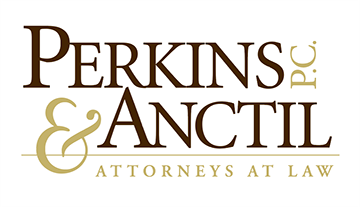On Monday, April 27th Massachusetts Governor Charlie Baker signed into law a measure allowing for virtual notarization of documents to address challenges related to COVID-19. The Act allows for a notary appointed pursuant to M.G.L. c. 222 who is an attorney or under the direct supervision of an attorney to be able to conduct business virtually, ensuring their safety during the state of emergency from the COVID-19 pandemic. A copy of the Act can be found at the following link:
https://malegislature.gov/Bills/191/S2645
Under this legislation a notary public may perform an acknowledgement, affirmation, or other notarial act utilizing electronic video conferencing in real time. These acknowledgments, affirmations and notarial acts will be deemed valid and effective so long as the following conditions are met:
- The notary public observes each principal’s execution of a document;
- Both the notary public and each principal are physically located within Massachusetts;
- The principal provides the notary with satisfactory evidence of identity (provided that the principal visually displays the identification over the video conference and that the principal transmits a copy of the front and back of said identification with the executed document or separately through electronic means and the notary must retain a copy of the identification credential for a period of ten (10) years);
- The principal makes the acknowledgment and affirmation to the notary;
- The principal causes the executed document to be delivered by delivery service, courier or other means in accordance with the instructions of the notary;
- With respect to any document requiring notarization executed in the course of closing a transaction involving a mortgage or conveyance of title of real estate, that upon receipt of the executed document the principal and notary engage in a second video conference where the principal verifies to the notary that the document received by the notary is the same as the one executed in the first video conference; and
- During the video conferences as described above each principal shall swear and affirm under the pains and penalties of perjury that the principal is physically located in Massachusetts and disclose any person present in the room with the principal and make that person viewable to the notary.___Once this process is completed the notary may then affix the notary stamp and signature to the executed document. The notary block shall indicate that “the document was notarized remotely pursuant to this act.” Additionally, the notary shall execute an affidavit under the pains and penalties of perjury that includes the following information:
- That the notary received a copy of the principal’s current identification credential and visually inspected it during the initial video conference;
- That the notary received verbal assent to the recording of the electronic video conference;
- That the notary took each principal’s affirmations as to physical presence of the principal within Massachusetts;
- That the notary was informed and notes on the affidavit any person present in the room including the relationship of that person to the principal.____This affidavit must be kept by the notary for a period of ten (10) years. Further the notary must keep the audio and video recordings for all conferences for a period of ten (10) years as well. While this legislation gives notaries the ability to safely conduct business during the pandemic, it will not be permanent as this legislation will be automatically repealed three (3) business days after the termination of Governor Baker’s state of emergency.____Perkins & Anctil has implemented virtual notarization in order to protect both our clients and our co-workers.
